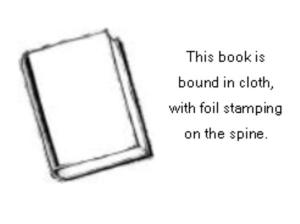Lincoln's Way
How Six Great Presidents Created American Power
Nonfiction, Social & Cultural Studies, Political Science, Government, History, Americas, United States| Author: | Richard Striner | ISBN: | 9781442200661 |
| Publisher: | Rowman & Littlefield Publishers | Publication: | September 16, 2010 |
| Imprint: | Rowman & Littlefield Publishers | Language: | English |
| Author: | Richard Striner |
| ISBN: | 9781442200661 |
| Publisher: | Rowman & Littlefield Publishers |
| Publication: | September 16, 2010 |
| Imprint: | Rowman & Littlefield Publishers |
| Language: | English |
The debate is as old as the American Republic and as current as this morning's headlines. Should a president employ the powers of the federal government to advance our national development and increase the influence and power of the United States around the world? Under what circumstances? What sort of balance should the president achieve between competing visions and values on the path to change? Over the course of American history, why have some presidents succeeded brilliantly in applying their power and influence while others have failed miserably?
In Lincoln's Way, historian Richard Striner tells the story of America's rise to global power and the presidential leaders who envisioned it and made it happen. From Abraham Lincoln to Theodore Roosevelt within the Republican Party, the legacy was passed along to FDR—the Democratic Roosevelt—who bequeathed it to Harry S. Truman, Dwight D. Eisenhower, and John F. Kennedy.
Six presidents—three from each party—helped America fulfill its great potential. Their leadership spanned the huge gulf that exists between our ideological cultures: they drew from both conservative and liberal ideas, thus consolidating powerful centrist governance. No creed of mere "government for government's sake," their program was judicious: it used government for national necessities. But it also brought inspiring results, thus refuting the age-old American ultra-libertarian notion that "the government that governs best, governs least."
In a forceful narrative blending intellectual history and presidential biography, Striner presents the legacy in full. An important challenge to conventional wisdom, Lincoln's Way offers both an intriguing way of looking at the past and a much-needed lens through which to view the present. As a result, the book could change the way we think about the future.
The debate is as old as the American Republic and as current as this morning's headlines. Should a president employ the powers of the federal government to advance our national development and increase the influence and power of the United States around the world? Under what circumstances? What sort of balance should the president achieve between competing visions and values on the path to change? Over the course of American history, why have some presidents succeeded brilliantly in applying their power and influence while others have failed miserably?
In Lincoln's Way, historian Richard Striner tells the story of America's rise to global power and the presidential leaders who envisioned it and made it happen. From Abraham Lincoln to Theodore Roosevelt within the Republican Party, the legacy was passed along to FDR—the Democratic Roosevelt—who bequeathed it to Harry S. Truman, Dwight D. Eisenhower, and John F. Kennedy.
Six presidents—three from each party—helped America fulfill its great potential. Their leadership spanned the huge gulf that exists between our ideological cultures: they drew from both conservative and liberal ideas, thus consolidating powerful centrist governance. No creed of mere "government for government's sake," their program was judicious: it used government for national necessities. But it also brought inspiring results, thus refuting the age-old American ultra-libertarian notion that "the government that governs best, governs least."
In a forceful narrative blending intellectual history and presidential biography, Striner presents the legacy in full. An important challenge to conventional wisdom, Lincoln's Way offers both an intriguing way of looking at the past and a much-needed lens through which to view the present. As a result, the book could change the way we think about the future.















